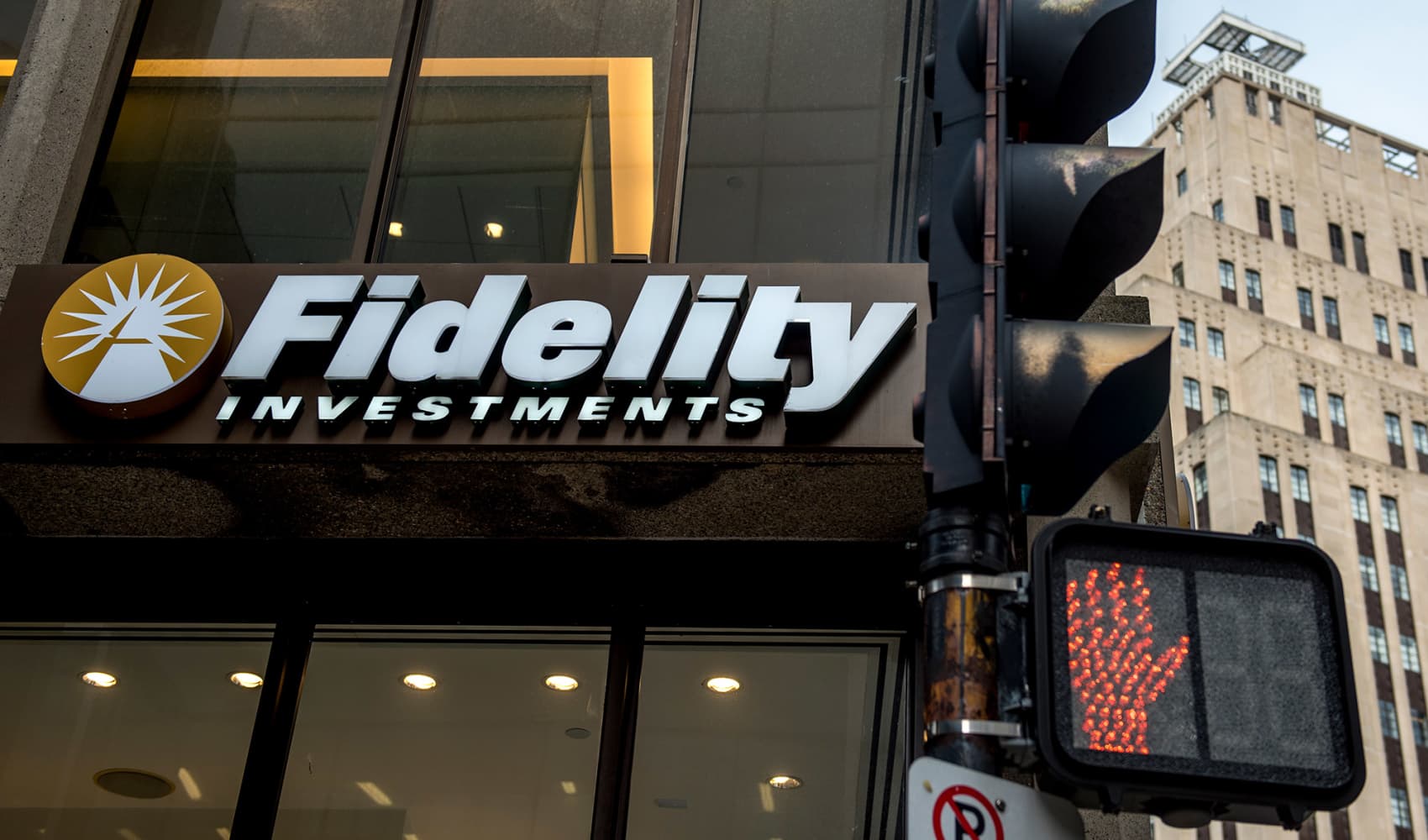Fidelity Login Glitch: Missed Market Rally? 5 Ways to Prep
Fidelity Login Fiasco: Missed Market Rally Due to Outage?
Introduction: When Opportunity Knocks... and You're Locked Out!
Imagine this: the market's roaring, your stocks are poised to skyrocket, and you're ready to make some smart moves. But instead of logging in to capitalize, you're staring at an error message. That's the frustrating reality some Fidelity Investments customers faced on a recent Monday morning. It's like watching your lottery numbers being called, but you can't find your ticket! Let's dive into what happened, why it matters, and what you can do to avoid a similar situation.
The Fidelity Login Glitch: A Timeline of Frustration
According to Downdetector, a website that tracks outages, more than 3,000 user complaints flooded in around 10 a.m. on that fateful Monday. The majority of these reports centered around login issues, with website-related problems and online brokerage issues trailing behind.
The Numbers Game: Quantifying the Disruption
To break it down further, Downdetector reported that:
- 79% of complaints were related to login problems.
- 12% cited website issues.
- 9% involved online brokerage problems.
These numbers paint a clear picture: a significant number of Fidelity users were locked out of their accounts at a crucial time.
The Market Context: A Missed Opportunity?
The timing of the login issues couldn't have been worse. News had broken that the U.S. and China had reached a temporary agreement on tariff cuts, sending major stock indices soaring. This was a golden opportunity for investors to capitalize on the positive market sentiment.
Rally Stats: The Gains Investors Could Have Seen
Here's a snapshot of the market's performance during the outage:
- The Dow Jones Industrial Average surged 1,136 points, or 2.7%, by mid-afternoon.
- The S&P 500 climbed nearly 3%.
- The Nasdaq Composite jumped 4%.
Those are substantial gains, and investors unable to access their accounts potentially missed out on a significant payday.
Why Login Issues Matter: More Than Just Inconvenience
Login issues aren't just a minor inconvenience; they can have real financial consequences. Imagine you're trying to execute a time-sensitive trade, rebalance your portfolio, or even just check your account balance. Being locked out can lead to missed opportunities, anxiety, and even financial losses.
Fidelity's Response (or Lack Thereof): What Did They Say?
Unfortunately, the provided content doesn't include information about Fidelity's official response to the outage. However, in these situations, companies typically issue a statement acknowledging the issue, explaining the cause, and outlining steps taken to resolve it. We'd need additional sources to determine Fidelity's actual response.
Possible Causes: What Could Have Gone Wrong?
Several factors can contribute to login issues, including:
- Server Overload: A sudden surge in user traffic can overwhelm servers, leading to slowdowns or outages.
- Software Bugs: Glitches in the website or app software can prevent users from logging in.
- Network Issues: Problems with Fidelity's network infrastructure can disrupt connectivity.
- Cyberattacks: Although less likely, a cyberattack could potentially disrupt access to accounts.
- Scheduled Maintenance: While usually announced, sometimes maintenance can cause unforeseen disruptions.
Protecting Yourself: What Investors Can Do
While you can't completely eliminate the risk of login issues, there are steps you can take to mitigate their impact:
Diversify Your Platforms: Don't Put All Your Eggs in One Basket
Consider using multiple brokerage accounts. If one platform experiences an outage, you can still access your investments through another. This redundancy can be a lifesaver during market volatility. It's like having a backup generator for your financial life.
Stay Informed: Monitor Outage Reports
Keep an eye on websites like Downdetector to stay informed about potential outages affecting your brokerage or other financial platforms. Knowing about a problem early can help you avoid making critical decisions while the system is unstable.
Use Strong Passwords and Two-Factor Authentication
Protect your accounts with strong, unique passwords and enable two-factor authentication (2FA) whenever possible. This adds an extra layer of security and reduces the risk of unauthorized access. Think of it as adding a deadbolt to your financial front door.
Have a Contingency Plan: Prepare for the Unexpected
Develop a contingency plan for dealing with potential outages. This might include identifying alternative ways to access your accounts or having a trusted financial advisor who can execute trades on your behalf if necessary. It's like having a fire escape plan – you hope you never need it, but you're glad it's there.
Download the Mobile App (But Don't Rely on It Solely)
While websites might experience issues, mobile apps sometimes remain functional. Download the Fidelity app, but remember that apps can also be affected by outages. Test it periodically to ensure you know how to use it.
The Bigger Picture: Reliability and Investor Trust
Outages like the Fidelity login glitch can erode investor trust. When people entrust their hard-earned money to a financial institution, they expect reliable access to their accounts. Repeated or prolonged outages can damage a company's reputation and drive customers to competitors. This is especially true in a world where younger generations expect seamless digital experiences.
Beyond Trading: Other Account Access Issues
While the focus is often on trading during market rallies, access to accounts is crucial for other reasons too:
Paying Bills and Managing Finances
Many people use their brokerage accounts for various financial tasks, such as paying bills, transferring funds, or managing their overall budget. Login issues can disrupt these essential activities.
Checking Balances and Monitoring Performance
Regularly checking account balances and monitoring investment performance is a key part of financial planning. Being locked out prevents investors from staying on top of their finances.
Accessing Important Documents
Brokerage accounts often store important documents, such as tax forms, account statements, and trade confirmations. Login issues can make it difficult to access these essential records.
The Future of Online Brokerage: Demanding Reliability
As online brokerage becomes increasingly prevalent, reliability will be paramount. Investors expect seamless, uninterrupted access to their accounts, regardless of market conditions. Financial institutions need to invest in robust infrastructure and proactive monitoring to minimize the risk of outages and maintain investor trust. We're talking about building digital fortresses, not flimsy houses of cards.
Conclusion: Lessons Learned from the Fidelity Fiasco
The Fidelity login glitch serves as a reminder of the importance of reliability in the world of online brokerage. While market rallies are exciting, they can also expose vulnerabilities in financial platforms. Investors should take proactive steps to protect themselves, diversify their platforms, and develop contingency plans for dealing with potential outages. And, perhaps more importantly, these financial institutions need to continue investing in infrastructure to ensure they deliver a dependable experience for their customers.
Frequently Asked Questions (FAQs)
Here are some frequently asked questions about brokerage account outages and how to protect yourself:
What causes brokerage account login issues?
Login problems can stem from server overload, software bugs, network issues at the brokerage, potential cyberattacks, or even scheduled maintenance that doesn't go as planned. High trading volume or unexpected events can exacerbate these issues.
How can I diversify my brokerage platforms?
Opening accounts at multiple brokerage firms spreads your risk. If one platform goes down, you can still manage your investments through another. Consider different firms with varied services and strengths to match your investment needs.
What should be included in my contingency plan for brokerage outages?
Your plan should include alternative ways to access your accounts (mobile app vs. website), contact information for customer support, a trusted financial advisor to potentially execute trades, and pre-defined strategies for managing your portfolio during volatile periods.
How do I enable two-factor authentication (2FA) on my brokerage account?
Log in to your brokerage account and navigate to the security settings. Look for options like "Two-Factor Authentication," "Multi-Factor Authentication," or "Security Keys." Follow the instructions to link your phone number or authentication app to your account. Each login will then require a code from your phone in addition to your password.
What should I do if I suspect my brokerage account has been hacked?
Immediately change your password, contact your brokerage's customer support team to report the incident, monitor your account for any unauthorized activity, and consider placing a fraud alert on your credit report. Document all communication with the brokerage.

